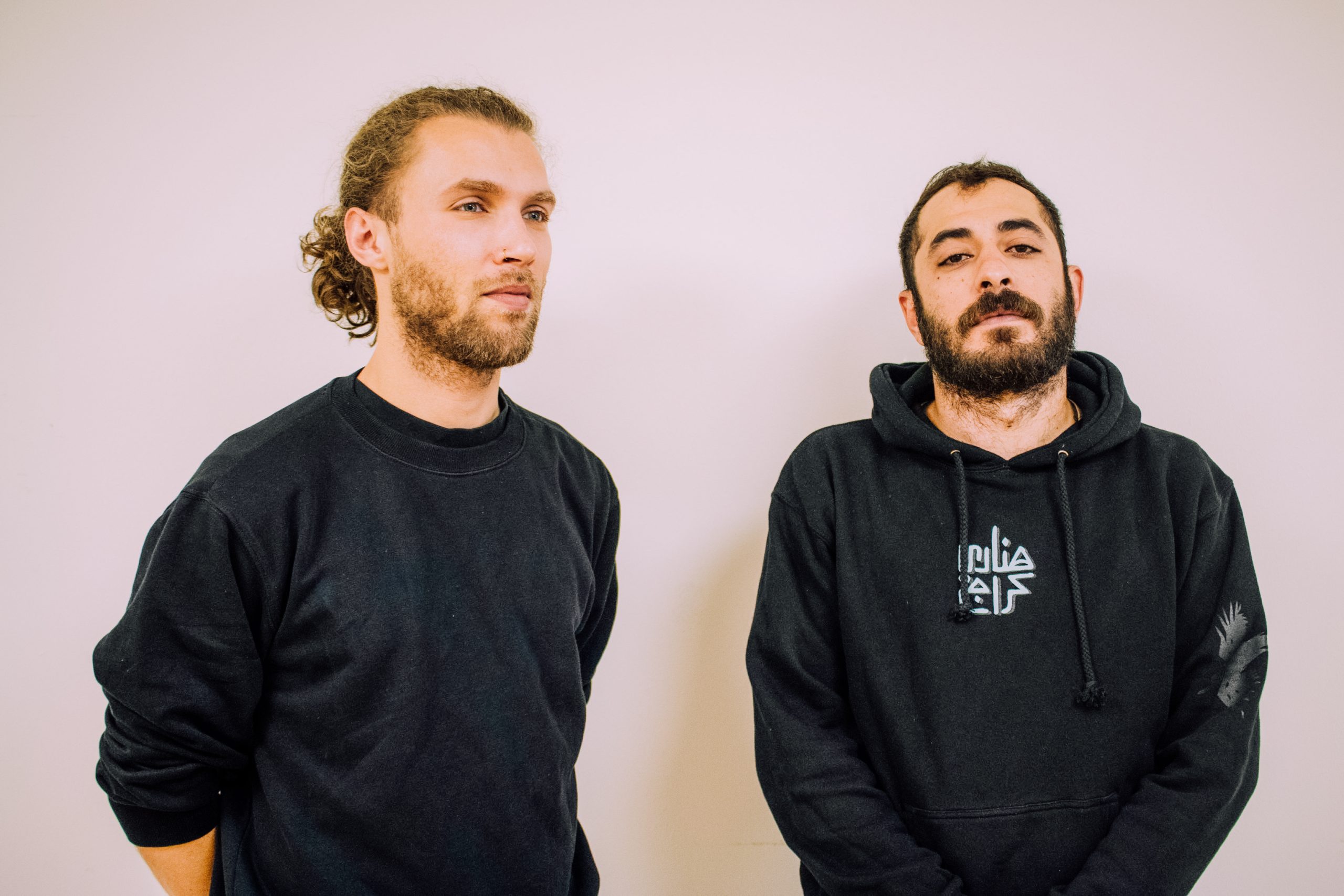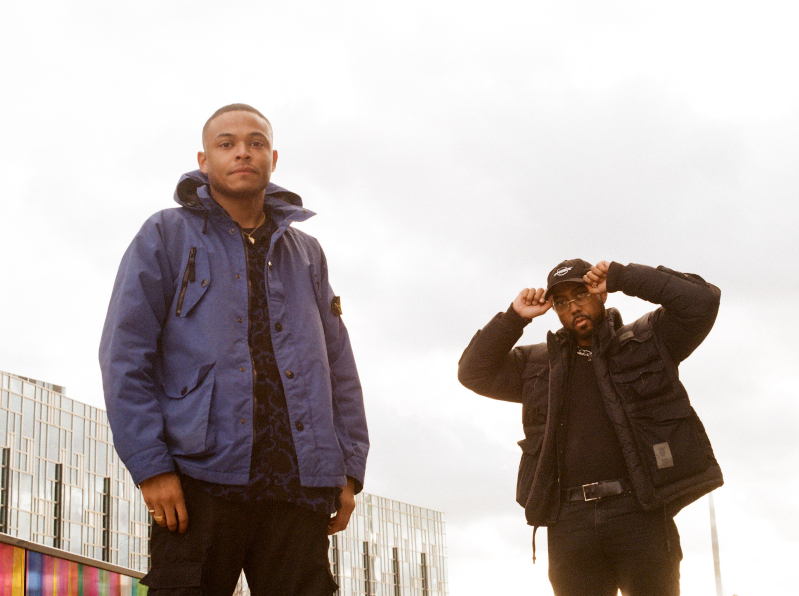Q&A: 5 minutes with SHKOON
The current landscape of electronic music, particularly that informed by the underground, has seen an increased visibility and influence from outside the West. From the amapiano explosion to the burgeoning presence of dembow and reggaeton, the world has never been more in tune with culturally rich ideas outside the scope of Eurocentric taste. In this sense, German-Syrian electronic outfit SHKOON are one of the most exciting acts to rise up on the scene, informed not only by the history of Western club music, but deep Middle Eastern roots. Their modus operandi is simple: to bring Arab electronic music to the world stage. Gaining acclaim by way of their live performances which see them reinterpret Arab classics in unexpected and inspired ways, SHKOON are bridging the gap between the Western world and theirs. Now, they’re expanding their live work even further with the release of FIRAQ, their new live album. The project is especially potent for SHKOON, who recorded the album just days after the loss of a close family member during lockdown. The result is a deeply poignant and tellingly cathartic work that fearlessly (perhaps unavoidably) confronts the complexities of grief. “A huge amount of raw emotion and angst went into the recording,” SHKOON says of the album, “and it is an experience that will stay with us both forever.” We caught up with them to find out more about FIRAQ, their recent remix of Ragheb Alama’s Arab pop classic, Ya Rayt, and why we should be paying close attention to the Arab underground.
Shkoon, it’s such a pleasure to chat with you, welcome to The Playground. How are you, what have you been up to?
Thank you for having us! We just started our album tour two weeks ago and it feels unbelievably good to be on the road together again.
Your music and practice looks to bridge the worlds of traditional Middle Eastern music and contemporary club sounds. What are the intersections you see in these styles?
There are no obvious intersections between these styles. We like to play with the differences and tensions these create. Traditional Arabic music has very different rhythmic patterns and time signatures and is also based on a different tuning and scales. So we are basically breaking the rules of both musical worlds all the time. And it’s really fun to trial and error what works and what doesn’t.
Can you tell us a bit about what the underground scene is like in the Arab world? What are the sounds or styles that people gravitate towards?
The underground scene in the Arab world is very diverse and differs a lot from country to country, as there are very different political and social situations. Ameen didn’t experience the underground scene when he was still in Syria. So we got to know it years after he left. There is a big drive towards Berlin techno sounds, but it’s constantly emerging and there are a lot of great talents to be discovered.
You have a brand new live album that’s just been released on WTR. Can you tell us more about that?
We recorded our live album FIRAQ at the end of 2020. It’s a mix of new songs, old songs of us, that we never released till today and some remakes of songs that people might already know. As it was really heavy and emotional times for us back then and we feel deeply connected to the recording and wanted to share it with our listeners.
You recently remixed an Arab pop classic, Ragheb Alama’s Ya Rayt. What drew you to rework this track?
When we got asked if we could imagine remixing one of Ragheb Alama’s songs, we didn’t need to think for long till we chose Ya Rayt, as it’s one of the songs Ameen and his generation grew up with. Even though we didn’t see the extent of our decision. As the original song is from the 80s we haven’t been able to work with separate stems of the recording, as there is only the master tape that exists today. So the whole process had more of an old bootleg remix feel for us, which was actually really interesting and refreshing.
Reworking a classic can go in two ways, I think. Either updating what exists or total reinvention. How did you approach this remix, and why?
We didn’t have a concept when we started working on it to be honest. We just went with the flow, working with musical timbre and tried to create a mood first. Afterwards we slowly started to integrate the vocals, the strings and its lyrics.
Do you think there’s a need for more visibility for lesser known electronic music scenes, such as those in the Middle East?
It’s always good to put a spotlight on the less visible scenes or artists. You would be surprised what talents there are to find.
Which artists should we be listening to right now from the scene?
Referring the the middle east, go check out: Hello Psychaleppo, Wass On Earth, Pomme Rouge, Nacim Gastli
What’s next for you? Can you share the details with us?
There is always something next, right now we’re focusing on our summer tour, and trying to finish all our unfinished music in the studio in between touring days.
Watch a video of the live recording of FIRAQ below.
Follow SHKOON
Facebook | Instagram | YouTube | SoundCloud



